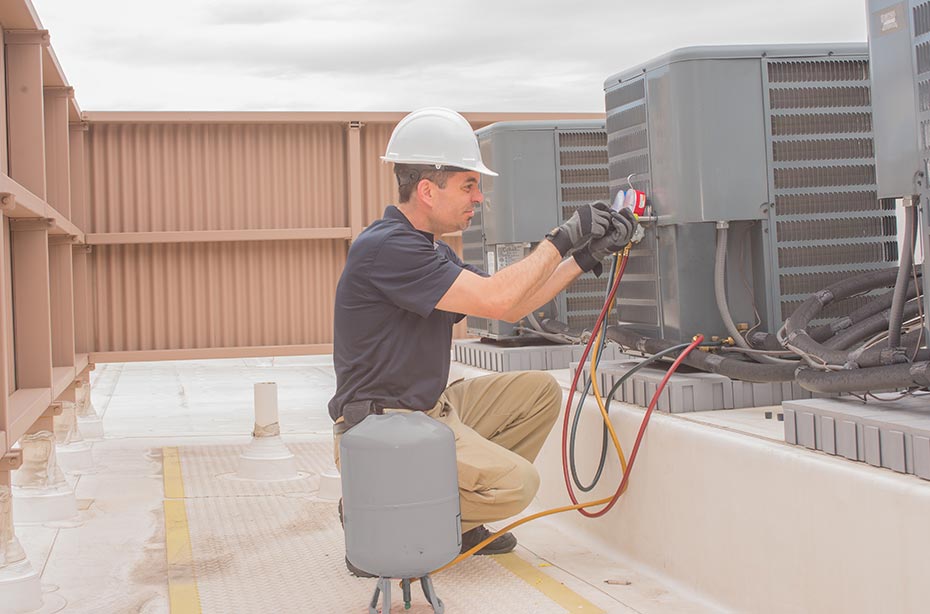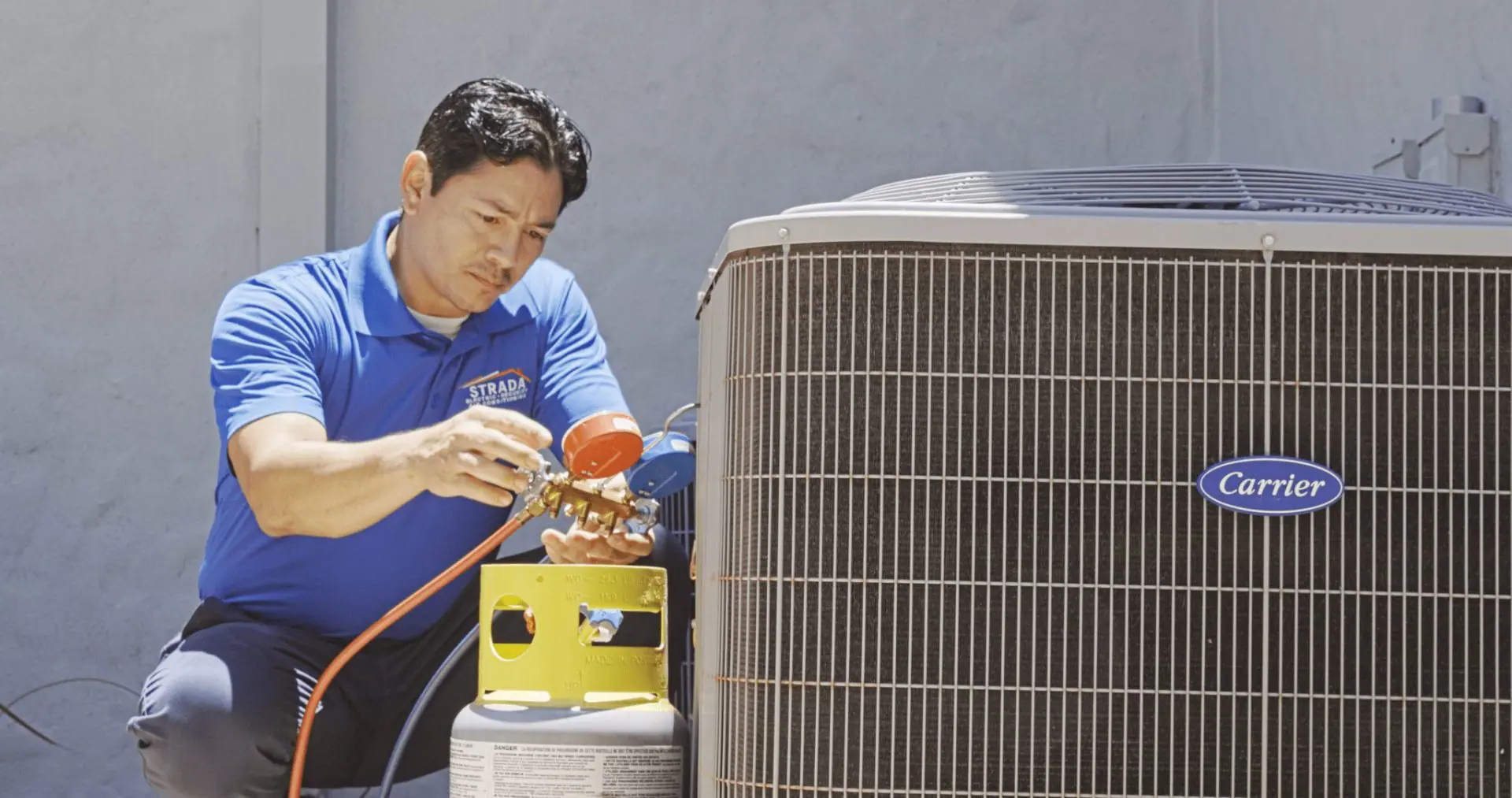Top Tips for Enhancing Comfort with ductless mini splits
Top Tips for Enhancing Comfort with ductless mini splits
Blog Article
Picking In Between a Warmth Pump and Furnace: Secret Factors To Consider for Your Heating And Cooling Demands
When examining heating alternatives for HVAC needs, the choice between a heatpump and a heating system can be intricate. Each system provides unique advantages tailored to details environments and power effectiveness objectives. Comprehending these distinctions is essential for making an informed choice. Key aspects such as installment prices and environmental impact further complicate the choice procedure. Which option absolutely straightens with one's comfort and sustainability choices? The adhering to areas will check out these factors to consider carefully.
Understanding Heat Pumps: How They Function and Their Advantages
While many property owners consider numerous home heating choices, understanding how heatpump function and their benefits can considerably affect their choice. Warm pumps operate by transferring warmth as opposed to producing it. In the winter season, they extract heat from the outdoors air or ground and move it inside your home, while in the summertime, they reverse this process, cooling down the home by expelling heat outside. This dual functionality makes them versatile for year-round environment control.One of the key advantages of heat pumps is their power performance. They make use of significantly less power compared to standard heating unit, potentially resulting in reduced energy bills (heat pump service). Additionally, warmth pumps have a smaller carbon impact, making them an eco-friendly choice. They likewise require much less upkeep than standard systems, contributing to long-lasting cost financial savings. Overall, comprehending the mechanics and benefits of heatpump can aid house owners make educated decisions concerning their home heating and cooling down demands
Discovering Heaters: Types, Procedure, and Benefits
Heating systems are available in various kinds, including gas, electric, and oil versions, each with unique operational devices. Understanding these differences is important, as they influence efficiency and heating efficiency. Additionally, heaters offer various benefits, such as regular warmth output and reliability in cooler environments.
Kinds of Furnaces
Furnace can vary substantially in layout and operation, with furnaces being a preferred selection amongst property owners. There are several kinds of heaters, each utilizing different fuel sources and technologies. Gas furnaces are typical, leveraging gas to create warmth effectively. Electric heaters, on the other hand, use electric resistance to generate heat, usually favored for their uncomplicated installation. Oil furnaces, while much less typical, are effective in areas with restricted gas gain access to (heat pump installation ooltewah tn). In addition, condensing heating systems take full advantage of power performance by recording and reusing exhaust gases. Each type operates with a system of heat exchangers and ductwork to distribute cozy air throughout a home. Understanding the distinctions in between these furnace kinds is vital for informed heating and cooling choices
Benefits of Heating systems
For homeowners seeking reputable heat throughout cold months, the benefits of heaters are substantial. Heating systems supply constant heating, making sure even temperature levels throughout the home. They are particularly efficient in severe cold, usually outmatching heatpump in cold conditions. Various kinds, consisting of gas, electric, and oil furnaces, provide adaptability to meet varied demands and preferences.Furnaces additionally tend to have lower first installment costs compared to heatpump, making them an extra accessible alternative for many. Their robust layout adds to a much longer lifespan, with many units lasting over 15 years with correct upkeep. Furthermore, contemporary heaters are usually furnished with sophisticated innovation for improved effectiveness, which can result in reduced energy expenses. Overall, heating systems continue to be a trustworthy option for reliable home heating.

Power Effectiveness: Contrasting Heat Pumps and Furnaces
When comparing energy efficiency between heatpump and furnaces, the Seasonal Power Performance Ratio (SEER) plays an essential function in establishing efficiency. Furthermore, an operational cost analysis discloses the long-lasting monetary implications of each system. Comprehending these aspects can direct home owners in making informed decisions about their home heating options.
Seasonal Power Performance Ratio
Power effectiveness plays a crucial duty in the decision-making process in between heatpump and heating systems, specifically when taking into consideration the Seasonal Power Efficiency Proportion (SEER) This metric measures the cooling effectiveness of warmth pumps over an entire cooling period, providing a standard way to examine performance. Higher SEER ratings show higher power efficiency, equating to lower power consumption and reduced utility costs. In contrast, heaters are typically assessed using the Yearly Fuel Use Performance (AFUE) ranking, which reflects home heating performance. When contrasting these two systems, property owners must focus on SEER rankings for warm pumps, as they straight effect overall power financial savings and ecological sustainability. An extensive understanding of SEER can especially affect the lasting contentment and cost-effectiveness of the selected a/c option.
Functional Price Analysis
Understanding the functional expenses connected with heatpump and heating systems is crucial for house owners examining their choices. Heatpump generally supply higher power performance, converting electric energy right into warm with marginal waste. This leads to lower month-to-month utility costs, specifically in modest environments. Alternatively, conventional heating systems, specifically gas designs, might have reduced in advance prices but can incur higher functional expenses over time as a result of sustain rates and efficiency ratings.Moreover, heatpump can operate as both heating and cooling down systems, possibly lowering the requirement for different cooling and heating units. While preliminary investments for warmth pumps might be greater, their long-term cost savings in energy performance can make them a much more cost-efficient selection for several homes. Mindful analysis of local power prices is vital to identify the very best choice.
Installment Costs: What to Anticipate for each and every Heater
Installment expenses for heating unit can vary substantially between heat pumps and heating systems, influencing property owners' decisions. Heatpump normally have greater upfront setup prices, normally varying from $3,500 to $8,000, depending upon the unit dimension and intricacy of setup. This consists of the exterior unit, indoor handling system, and necessary ductwork alterations. Alternatively, heating systems tend to have reduced first prices, Learn More Here balancing between $2,500 and $6,000, which can be appealing for budget-conscious homeowners. However, installment costs can boost if comprehensive ductwork is required.Moreover, the selection of fuel kind for furnaces-- all-natural gas, gas, or electrical-- can likewise impact installment expenses. While warmth pumps use energy performance, their initial financial investment may prevent some purchasers. Eventually, assessing setup prices along with long-term savings and effectiveness will help property owners in making educated decisions regarding their furnace.
Climate Considerations: Which System Carries Out Much Better in Your Location
Just how do environment conditions affect the efficiency of heating unit? The efficiency of heat pumps and heating systems can vary considerably relying on the neighborhood environment. In moderate environments, heatpump succeed by successfully moving warmth from the outdoors air, making them an energy-saving choice. Nevertheless, their efficiency diminishes in very chilly temperature levels, where they might battle to remove adequate warm. On the other hand, furnaces, specifically gas versions, give reputable and consistent heat no matter exterior problems, making them more effective in colder regions.In locations that experience milder wintertimes, heat pumps can operate effectively year-round, offering both heating & cooling. In contrast, areas with severe winters months commonly take advantage of the toughness of heating systems. Ultimately, recognizing the local environment is necessary when choosing between a heatpump and a furnace, as it straight impacts their functional efficiency and general efficiency.
Upkeep Demands: Long-Term Care for Warm Pumps vs. Furnaces
While both heatpump and furnaces call for regular maintenance to assure peak performance, their specific demands and care regimens differ considerably. Furnaces commonly require less constant interest, with yearly evaluations being sufficient to look for gas leakages, clean filters, and evaluate total functionality. Their easier design usually permits uncomplicated repairs.In contrast, heatpump demand biannual maintenance due to their dual role in heating and air conditioning. This includes cleansing coils, examining refrigerant levels, and making sure that both the interior and outside click for source devices operate at their best. Additionally, heatpump maintenance usually entails more detailed elements, making specialist maintenance essential.Neglecting maintenance can bring about lessened effectiveness and boosted energy prices for both systems. Inevitably, house owners ought to consider these lasting care requirements when selecting between a heatpump and a heating system, as aggressive upkeep can prolong the life-span and performance of either system significantly.
Environmental Effect: Picking a Sustainable Heating Option
The ecological effect of heater is a crucial analysis for homeowners seeking lasting options. Heat pumps are normally extra energy-efficient than conventional heating systems, as they move warm instead than create it, considerably lowering carbon emissions. By using renewable energy sources, such as geothermal or air-source heat pumps, property owners can further lessen their eco-friendly footprint.On the other hand, natural gas furnaces send out greenhouse gases and contribute to air pollution, though they usually supply higher heat output. Advancements in technology have led to the growth of high-efficiency heaters that reduce emissions.Ultimately, selecting a heating system includes weighing efficiency against ecological influence. Homeowners are encouraged to review local power sources and rewards for renewable systems, making sure a selection that aligns with both individual comfort and environmental responsibility. The decision impacts not only instant comfort however likewise long-term sustainability and environmental wellness.
Frequently Asked Concerns
For How Long Do Heat Pumps and Furnaces Normally Last?
The life-span of heatpump usually varies from 15 to 20 years, while furnaces can last between 15 to 30 years. Routine upkeep substantially affects their durability and effectiveness in providing heating remedies.
Can I Make Use Of a Heatpump in Incredibly Cold Climates?
Heatpump can operate in exceptionally chilly climates, yet their efficiency decreases as temperature levels decrease. In such conditions, supplementary home heating sources might be essential to keep comfy interior temperature levels and ensure peak efficiency.

What Is the Noise Degree of Warm Pumps Versus Furnaces?
The sound levels of heatpump and furnaces vary significantly. Typically, warmth pumps operate more quietly than typical furnaces, making them preferable for those delicate to sound, while heaters may produce louder operational noises throughout heating cycles.
Are Warm Pumps Suitable for Both Heating & Cooling?
Heatpump are undoubtedly ideal for both cooling and heating (heat pump replacement ooltewah tn). They work by moving warm, supplying effective temperature control year-round, making them a versatile option for property owners looking for an all-in-one cooling and heating service
What Size Home Heating System Do I Required for My Home?
Figuring out the proper size heater for a home calls for reviewing factors such as square video, insulation quality, local climate, and the home's format. Consulting a professional can assure an accurate evaluation and suitable comfort. Heat pumps typically use greater power performance, converting electrical energy right into warm with very little waste. In moderate climates, warm pumps stand out by efficiently moving warmth from the outdoors air, making them an energy-saving option. On the other hand, furnaces, specifically gas designs, give consistent and trusted heat no matter of exterior problems, making them better in colder regions.In areas that experience milder winters months, heat pumps can operate effectively year-round, offering both heating and air conditioning. Warmth pumps are typically a lot more energy-efficient than conventional heating systems, as they transfer warmth rather than generate it, significantly decreasing carbon exhausts. By utilizing sustainable power resources, such as read geothermal or air-source warm pumps, homeowners can further minimize their environmental footprint.On the other hand, all-natural gas heaters give off greenhouse gases and contribute to air contamination, though they often give greater warmth output.
Report this page